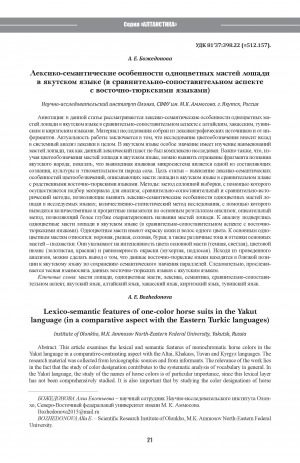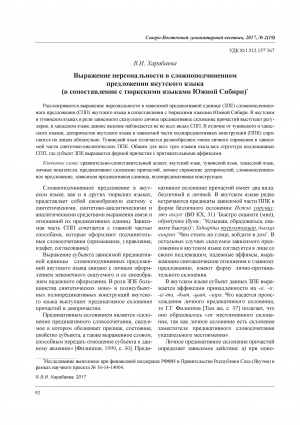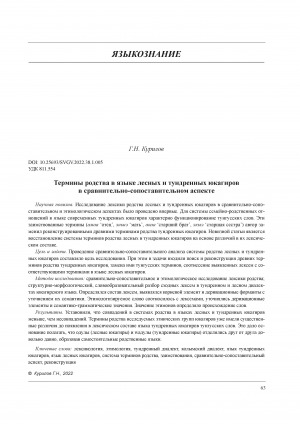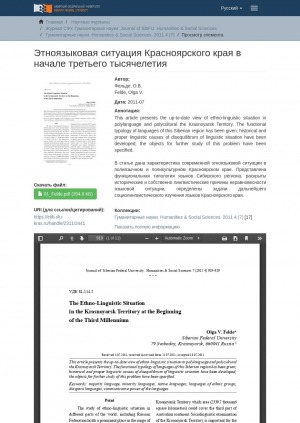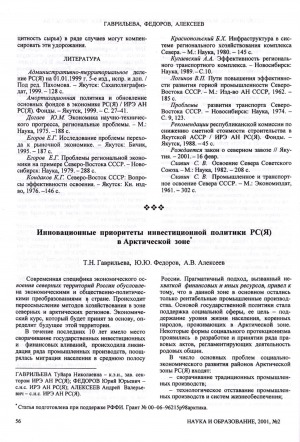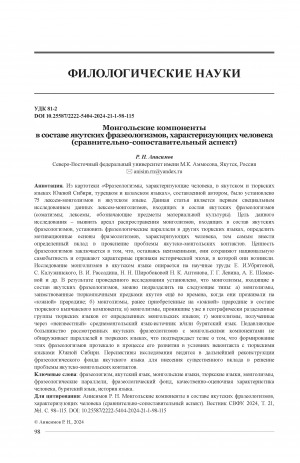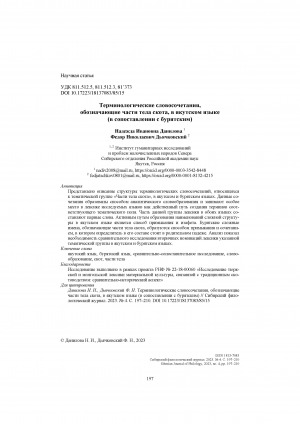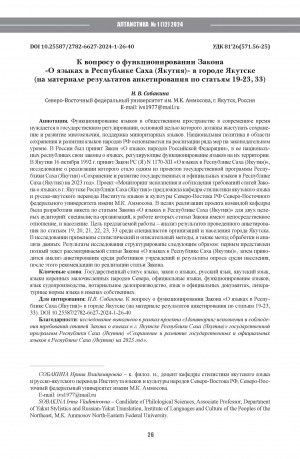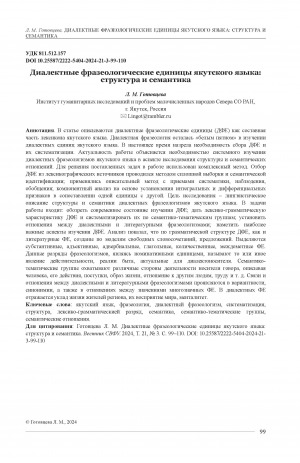
Зооморфная лексика в составе якутских фразеологизмов и паремий (в сопоставлении с монгольскими языками) = Zoomorphic Lexis in the Composition of Yakut Phraseological Units and Proverbs (Comparison with the Mongolian Languages)
Статья в журнале
Русский
811.152.157'362:811.512.3
якутский; бурятский; калмыцкий языки; метафора; зоонимы ; фразеология; паремиология; сравнительно-сопоставительный аспект; Yakut; Buryat; Kalmyk languages; metaphor; zoonyms; phraseology; paremiology; comparative aspect
Северо-Восточный гуманитарный вестник. – 2022. – 4 (41) (С. 67-78)
The scientific novelty of the study lies in the fact that pastoral vocabulary in the composition of phraseological units and proverbs as a basis for characterizing a person, as well as for expressing the moral postulates of the people, was not the object of study in comparison with the data of the Mongolian languages. The aim of the work is to identify and describe the metaphorical expression of the characteristics and evaluation of a person, his physical abilities and moral requirements for him in the Yakut phraseological and paremiological units with the components horse, cow, bull, foal in comparison with their equivalents in the Kalmyk and Buryat languages. The article uses methods and techniques of descriptive, semantic and comparative analysis, applied elements of the method of systematization of dictionary definitions. By the method of continuous sampling from lexicographic sources: explanatory, translated, phraseological dictionaries, phraseological and paremiological units were established that express the characteristics of a person and moral and ethical norms in relation to his actions. The classification of the studied units by semantic types is carried out. Results. The study made it possible to establish that cattle-breeding vocabulary as part of the phraseological and paremiological units of the compared languages expresses the physical and moral characteristics of a person. These units also fully convey the collective ideas of the Yakuts, Buryats and Kalmyks about the rules based on ideas about the attitude to work and the basic principles of life: wealth / poverty, luck / failure, age. At the same time, the figurative, evaluative characteristics of a person, expressed by the words horse, cow, bull, foal, in general have positive connotative features, which is explained by the important role of cattle breeding in the life of these peoples.
Данилова, Н. И. Зооморфная лексика в составе якутских фразеологизмов и паремий (в сопоставлении с монгольскими языками) / Н. И. Данилова, Ф. Н. Дьячковский ; ФИЦ "Якутский научный центр СО РАН" // Северо-Восточный гуманитарный вестник. - 2022. - N 4 (41). - С. 67-78. - DOI: 10.25693/SVGV.2022.41.4.006
DOI: 10.25693/SVGV.2022.41.4.006
Войдите в систему, чтобы открыть документ
